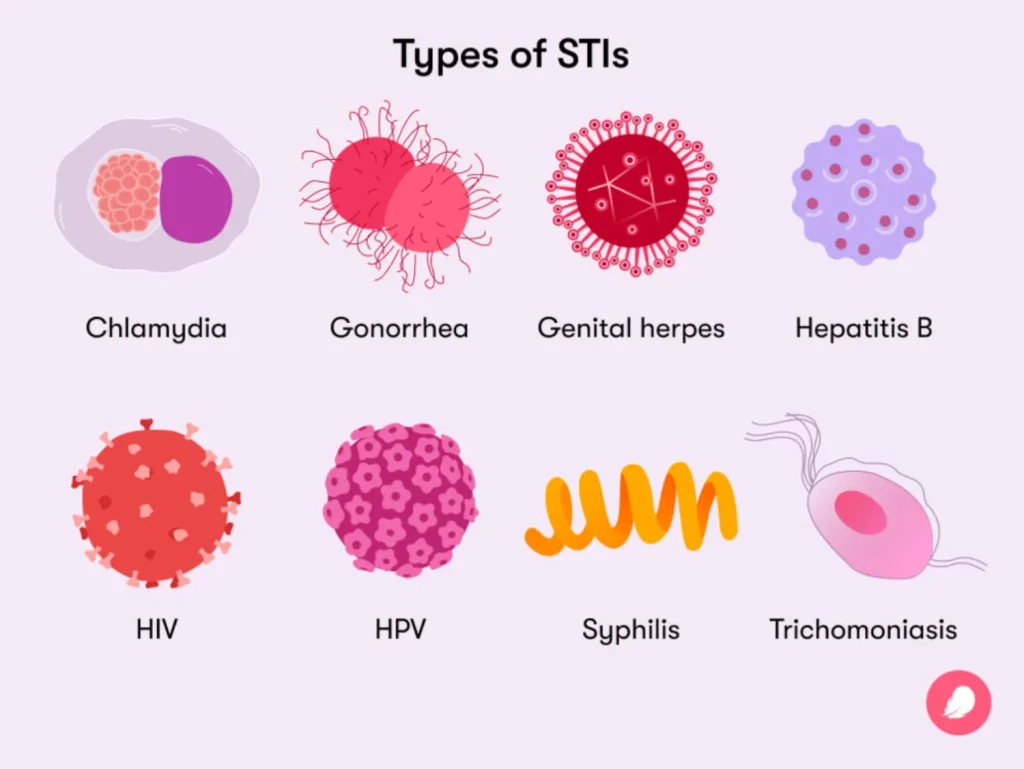Sexually transmitted infections (STIs) are infections that are spread primarily through person-to-person sexual contact. There are more than 30 different sexually transmissible bacteria, viruses and parasites. STIs are common and can cause serious health problems if left untreated.
What are the types of STIs?
There are many different types of STIs. The common types include the following:
- Chlamydia
- Gonorrhoea
- Syphilis
- Human papillomavirus (HPV)
- Herpes
- Human immunodeficiency virus (HIV)
- Trichomoniasis
- Hepatitis B

What are the symptoms of STIs?
The symptoms of STIs vary depending on the type of infection. Some STIs may cause no symptoms at all, while others may cause symptoms such as:
- Pain or discomfort during sex
- Abnormal discharge from the vagina or penis
- Sores or blisters on the genitals or around the mouth
- Burning or itching in the genital area
- Painful urination
How can STIs be prevented?
The best way to prevent STIs is to practice safe sex by:
- Using a barrier method of contraception, such as condoms, every time you have sex.
- Getting tested regularly for STIs, especially if you are sexually active with multiple partners.
- If you are diagnosed with an STI, get immediate treatment to prevent the infection from spreading and other complications.
What should you do if you think you have an STI?
- If you think you may have an STI, it is important to get tested as soon as possible.
- You can talk to your healthcare provider about getting tested or visit a sexual health clinic.
- Many STIs can be treated with antibiotics or antiviral medications, so it is crucial to get treatment as soon as possible to prevent serious health problems.
Written and reviewed by
Dr Omolayo Anjorin (MBBS, MSc, PhD (in view)
Dr MaryJane Nweje (MBBS, MSc)
Sources:
- Oxford Handbook of Clinical Medicine 4th Edition
- FLO – Sexually transmitted infections (STIs): All the types you need to know. https://flo.health/menstrual-cycle/sex/stis/sexually-transmitted-infections-types

